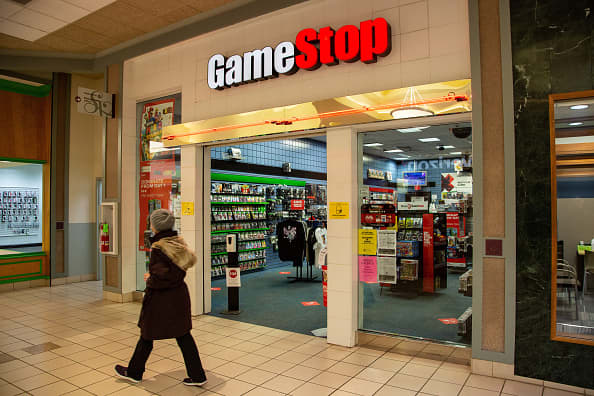This post was originally published on this site

New York University finance professor Aswath Damodaran told CNBC on Thursday the trading frenzy in GameStop and AMC Entertainment shares do not change the companies’ fundamental problems and calls into question the long-term strategy for online investors who sparked the short squeeze in the stocks.
Known as the “Dean of Valuation” for his company analyses, Damodaran said on “Power Lunch” he understands investors on sites like Reddit were motivated by a desire to cause financial pain for the hedge funds that shorted GameStop and AMC.
“I’ve never been a fan of hedge funds. I don’t think many of them bring much to the table and they charge absurd amounts of money for doing so,” Damodaran said. “When I look at the investors who are driving GameStop and AMC, they’re pretty open about the fact they couldn’t care less about value. This has become a game.”
Short selling is a bet that a stock will decrease in price. When the opposite happens, a short seller may seek to limit their potential losses by purchasing the stock at its current higher prices. Some high-profile short sellers of GameStop have indicated they retreated from their positions after online investors piled into the name and sent shares soaring.
“The question for those Reddit investors I would ask: ‘What is your end game? What do you hope to get out of this?'” Damodaran said. He noted a desired outcome may be driving a few hedge funds that shorted GameStop or AMC shares out of business.
“OK, you might succeed but do you really want to end up with AMC, GameStop and BlackBerry as the stocks in your portfolio?” Damodaran said. “I mean, these are companies with serious, serious structural problems. Those problems aren’t going to go away because you pushed up the price. There is going to be pain.”
Shares of both AMC and GameStop were under pressure Thursday, as numerous online brokerages placed trading restrictions on the stocks after the epic short squeezes in the names. Entering Thursday’s session, GameStop was up nearly 2,000% in January alone.
AMC shares fell more than 50% on Thursday, one day after the movie theater chain advanced about 300% in a single session. GameStop finished down more than 40% on Thursday to around $194 per share.
Damodaran said he believes some investors learned the wrong lesson from past short squeezes involving Tesla. The electric-vehicle maker’s stock has divided Wall Street for years and attracted significant short positions from bearish investors.
Tesla shares have been a tear in the last year, up more than 800% since early January 2020.
“The difference between Tesla and GameStop is the people who sustain Tesla actually believe in the company. They think it’s going to be a great company, whether you agree with them or not,” said Damodaran, who has previously raised question’s about the most-bullish Tesla forecasts.
And while GameStop’s stock jumped in early January partly due to Chewy co-founder Ryan Cohen joining its board, sparking some hope he could help lead a digital transformation, Damodaran contended the video game retailer has an uphill climb. He suggested that was also the case for AMC, which faces the threat of digital streaming.
“Is there anybody who thinks that we’re all going to go back to malls and that GameStop is going to come roaring back or that AMC is going to come back as a movie theater business for the future? I don’t see anybody buying these companies because they think that these companies have a rosy future,” Damodaran said.
“That is the big difference between Tesla and GameStop and for those people drawing the Tesla lessons, you might be looking at the wrong story,” he said.




